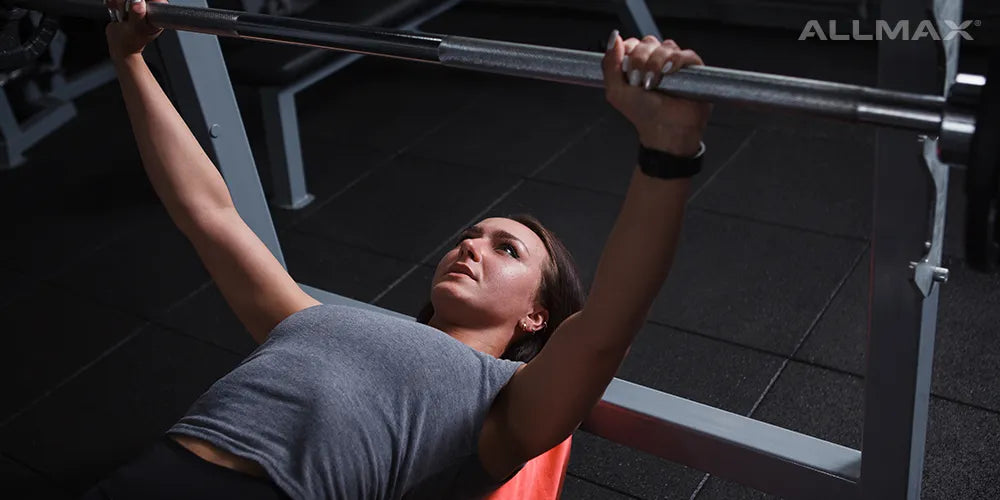Muscle growth and fat loss, two essential factors for achieving a stage-ready, beach-worthy physique, depend largely on optimizing the two primary bodybuilding hormones: growth hormone (GH) and testosterone (T). Critical as they may be to dialing down (fat) and building up (muscle).
Table of contents
What Are Muscle Building Hormones and Why Are They Important?
Hormones are regulatory biochemicals produced by the endocrine glands and transported through the bloodstream to target organs. They coordinate physiology and cellular behavior, influencing everything from appetite to stress responses. For bodybuilders and fitness enthusiasts, muscle-building hormones are essential for:
Ensuring productive workouts
Maximizing training results
Supporting recovery and muscle repair
The balance and interaction of these hormones can either enhance muscle growth or lead to issues such as low energy, slowed metabolism, poor recovery, and reduced protein synthesis.
The interplay and constant fluctuations of the body’s hormonal balance can either support muscle building or lead to issues such as a sluggish metabolism, poor workout recovery, low energy levels, and reduced protein synthesis. While consuming ample protein and training intensely can help shape your physique, maximizing progress requires ensuring your hormone levels are optimized or managed when necessary.
#1: Testosterone

The king of all bodybuilding hormones, testosterone (the principal male hormone responsible for building muscle size and strength), promotes the growth of many bodily tissues and is essential for health and well-being. Also produced by women, though at levels 7–8 times lower than in men, testosterone is a key muscle-building hormone that should be maintained at the highest possible levels to ensure consistent results.
Because testosterone is essential for increasing protein synthesis to build more muscle at a faster rate, and considering its influence on keeping growth hormone levels sufficiently high to burn body fat, its depletion will significantly curtail our chances of gaining lean muscle mass.
Testosterone also supports:
Growth of many bodily tissues
Protein synthesis for faster muscle gains
Maintenance of high growth hormone levels to promote fat burning
To naturally boost testosterone and optimize muscle growth, consider:
Resting adequately between workouts
Training with heavy weights and low reps (6-8)
Limiting cardio and focusing on resistance training
Increasing carbohydrate intake periodically (3 g per pound of body weight once per week)
Maintaining low body fat (~12% or lower)
Reducing alcohol consumption
Eating healthy fats and some saturated fats from red meat
Supplementing with natural testosterone boosters
Avoiding fasting or consistently low-calorie diets
#2: Growth Hormone (GH)
Human growth hormone, which stimulates growth, cell reproduction, and the release of insulin-like growth factor to enhance protein synthesis, plays a vital role in promoting fat loss and preventing muscle breakdown. As with testosterone, GH production is to be encouraged in healthy trainees. While dieting, many people lose muscle mass and body fat, a natural result of combining aerobic exercise with intensive weight training and a low-fat, low-calorie diet. A loss of muscle mass can lead to a reduced metabolic rate and decreased fat burning. It is therefore essential that we maintain muscle while getting lean, one of the toughest training dilemmas the natural bodybuilder will ever face.
Benefits of growth hormone include:
Supporting fat loss
Protecting muscle mass during dieting
Increasing metabolic rate
To increase GH naturally:
Get at least 8 hours of quality sleep every night
Train heavy with low reps (6-8 or fewer)
Include HIIT or sprint sessions 2-3 times weekly
Supplement with niacin (1-3 g per day)
Stay lean and control insulin levels by moderating carbohydrate intake
#3: Insulin
Unlike naturally released GH and testosterone, insulin is one hormone that has the potential for doing either great good or much harm. It must therefore be manipulated accordingly. Released in excessive amounts at the wrong times, insulin, produced by the beta cells of the pancreas and central to regulating carbohydrate and fat metabolism, may promote fat storage. Used strategically, however, it can create an anabolic environment that boosts muscle growth and promotes fat loss.
In a calorie-controlled pre-contest diet, for example, low insulin levels at rest, between training sessions, and especially before bed, can support fat burning while higher levels around training can promote the rapid uptake of amino acids and glycogen into the muscles, both essential for building size.
Insulin regulates carbohydrate and fat metabolism. Its effects depend on timing and amount:
Excessive insulin at rest can promote fat storage
Strategic insulin spikes around workouts increase muscle glycogen and amino acid uptake, enhancing growth
To optimize insulin for muscle building:
Consume 50 g of fast carbs before and 60-70 g after training (adjust for bodyweight)
Keep carbs moderate during the rest of the day to avoid fat gain
#4: Thyroid Hormone
Primarily responsible for regulating metabolism, the thyroid hormones triiodothyronine (T3) and thyroxine (T4) also support protein synthesis and fat loss. A major problem with all calorie-restricted diets is the concomitant diminishing of thyroid hormone levels.
Low thyroid levels, common during calorie-restricted diets, can cause:
Reduced protein synthesis
Lower metabolism
Training plateaus
To improve thyroid function and to offset a reduction in thyroid hormone due to pre-contest dieting, do the following:
Eat foods rich in iodine (a substance which is necessary for the production of thyroid hormone): such as eggs, cow’s milk, saltwater fish, seaweed, and shellfish
Incorporate periodic cheat days: to prevent your body from adjusting to constant low calorie eating, and to trick the thyroid into up-regulating to boost your metabolic rate, up the calories once every 8-10 days (on this day, three carbohydrate grams per pound of bodyweight may be eaten) and an additional 15-20 grams of fat may be consumed.
#5: Cortisol

While the stress hormone cortisol (a glucocorticoid steroid) may burn body fat, and indeed some bodybuilders deliberately overtrain to boost its production to put the finishing touches on their shredding efforts, its effects are mostly negative:
Suppresses the immune system
Causes muscle breakdown
Promotes fat gain
Leads to mood swings, fatigue, and insomnia
To reduce cortisol levels:
Minimize stress, relax often, and avoid pointless, unnecessary arguments
When dieting, ensure that 2-3 post-workout feedings per week are very high in simple sugars (fat-free cookies, sugar-coated rice cakes, sweets)
Reduce caffeine intake: 200mg of caffeine from a strong cup of coffee may increase blood cortisol levels by 30% in one hour!
Sleep more deeply and for longer.
Keep blood sugar stable
Take stress-busting supplements such as the antioxidants, magnesium, calcium, chromium, and zinc
#6: Estrogen
A hormone produced mostly in females but also to a lesser degree in men (for sperm production and bone maintenance), estrogen (steroidal compounds integral to both menstrual and estrous reproductive cycles) runs counter to bodybuilding and fat loss success. Excess estrogen may even contribute to prostate and breast cancer.
Men with a higher body fat percentage are also shown to have elevated estrogen levels. Affecting the way we look and feel is the testosterone-to-estrogen ratio: a superior ratio for maximal lean muscle gains would see testosterone production high and estrogen output at minimal levels.
Decrease body fat, as fat tissue increases levels of the enzyme aromatase, which converts testosterone into estrogen. The more body fat we have, the more aromatase we produce.
Consider supplementing with an all-natural Aromatase Inhibitor
Consume a diet high in cruciferous vegetables such as broccoli, cauliflower, and cabbage (indole compounds found in these foods may interfere with estrogen absorption and uptake into our bodily tissues)
Limit alcohol consumption
Supplements That May Support Hormonal Health
Testosterone boosters
Niacin for growth hormone
Adaptogens (e.g., ashwagandha) for cortisol management
Natural aromatase inhibitors
Additional Tips to Optimize Muscle Building Hormones
Beyond focusing on individual hormones, your overall lifestyle and daily habits play a huge role in regulating your body’s hormonal balance. By making smart choices in training, nutrition, rest, and supplementation, you can optimize the environment for building muscle, burning fat, and enhancing recovery.
Lifestyle Habits That Support Hormone Balance
Prioritize quality sleep (7-9 hours)
Maintain a balanced diet rich in whole foods
Manage stress through relaxation techniques like meditation or yoga
Avoid overtraining and allow recovery days
Stay hydrated
Summary: Hormones Are the Foundation of Muscle Growth and Fat Loss
It takes more than heavy lifting and protein to build muscle. Your endocrine system, through muscle-building hormones, plays a vital role in creating an anabolic environment for consistent muscle growth and fat loss.
Ensure your testosterone, growth hormone, and thyroid hormone levels are optimized, while keeping estrogen and cortisol low and insulin balanced according to your training goals. Mastering this hormonal balance puts you well on the path to a powerful, lean, and stage-ready physique.
References
- Mayo Clinic. Chronic Stress Puts your Health at Risk. [Online] https://www.mayoclinic.org/healthy-lifestyle/stress-management/in-depth/stress/art-20046037 retrieved on 27.3.14
- Najjar, S (2001). “Insulin Action: Molecular Basis of Diabetes”. Encyclopedia of Life Sciences (John Wiley & Sons). [Online] https://onlinelibrary.wiley.com/doi/10.1038/npg.els.0001402
- Stokes, K.A., Tyler, C., & Gilbert, K.L. (2008). The growth hormone response to repeated bouts of sprint exercise with and without suppression of lipolysis in men. Journal of Applied Physiology, 104(3), 724-728. [Online] https://researchportal.bath.ac.uk/en/publications/the-growth-hormone-response-to-repeated-bouts-of-sprint-exercise-
- Boron, Walter & Boulpaep, E.L.. (2003). Synthesis of thyroid hormones. Medical Physiology: A Cellular and Molecular Approach. [Online] https://www.researchgate.net/publication/285497936_Synthesis_of_thyroid_hormones



